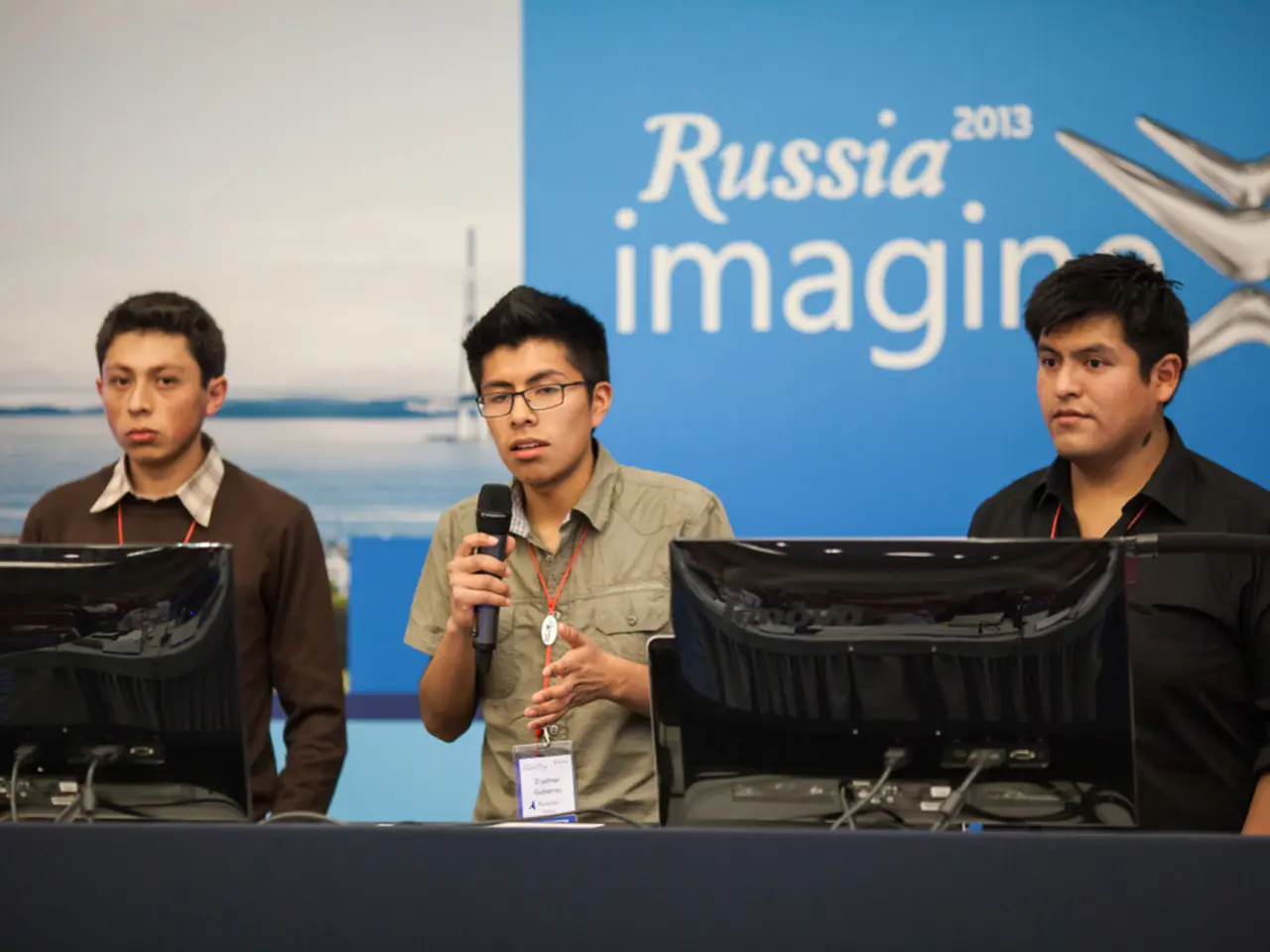Russia increases regulation over messaging platforms, limiting voice calls on WhatsApp and Telegram
Russia's authorities have taken a significant step in tightening control over digital communication, imposing restrictions on voice and video calls on foreign messaging services WhatsApp and Telegram. The restrictions, justified by the Russian state censorship agency Roskomnadzor, aim to combat criminal activities such as fraud, extortion, sabotage, and terrorism connected to these apps [2][3][5].
The move is part of a broader, multiyear government strategy to shift Russians away from foreign platforms towards domestically controlled alternatives. This includes the rollout of a new Kremlin-backed messaging app called Max, which will come pre-installed on all devices sold in Russia starting September 1, 2025. Max is intended to serve as a secure, multifunctional government and business communication platform [1].
The authorities claim the restrictions are aimed at protecting minors and fighting terrorism, but critics view these measures as a way to increase state internet control and censorship. Reports of connectivity disruptions preceding official confirmation suggest that the partial blocking of WhatsApp and Telegram calls began in early August 2025 [1][4].
Telegram, in response, asserts that it actively removes harmful content, including calls for violence and fraud, deleting millions of posts daily. Meta's WhatsApp, on the other hand, claims Russia's actions are an attempt to undermine secure communication for over 100 million users in the country [6].
The new law also includes penalties for searching "extremist" content and a ban on promoting VPNs, which has led to YouTube access in Russia now requiring VPNs. It is important to note that the new law does not apply to Meta's WhatsApp and Telegram, but they are still facing restrictions [7].
This strategic restriction of Telegram and WhatsApp is thus both a security measure officially, and a broader political move to consolidate digital sovereignty and state surveillance capabilities in Russia [2][3][1]. The move follows President Vladimir Putin's July law imposing stricter curbs on online expression, further cementing Russia's stance on digital control [8].
Since 2022, Facebook and Instagram have been blocked in Russia, and the ban on promoting VPNs is part of the new law. The move is part of a crackdown on digital platforms in Russia, reflecting the country's commitment to maintaining control over digital communication within its borders.
References:
- Russia to make Max messenger app pre-installed on all devices
- Russia to restrict WhatsApp and Telegram calls, citing security concerns
- Russia to restrict WhatsApp, Telegram calls amid cybersecurity concerns
- Russia restricts WhatsApp, Telegram calls, sparking concerns over internet freedom
- Russia's Roskomnadzor partially restricts WhatsApp, Telegram calls
- WhatsApp slams Russia's move to restrict its services
- Russia's new internet law doesn't apply to Meta's WhatsApp, Telegram, but they are still facing restrictions
- Russia's Putin signs law tightening curbs on online expression
- In the context of growing cybersecurity concerns, Russia's decision to restrict voice and video calls on foreign messaging services like WhatsApp and Telegram aligns with a larger strategy to promote domestically controlled alternatives, such as the Kremlin-backed messaging app Max.
- Amidst the tightening control over digital communication in Russia, the technology sector is witnessing a shift towards state-controlled platforms, with Max, a secure multi-functional government and business communication platform, being made compulsory on all devices by September 2025.




